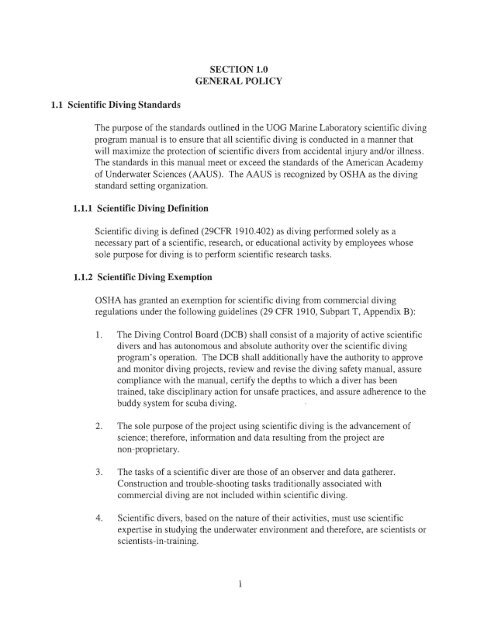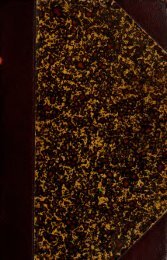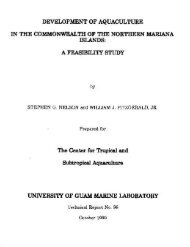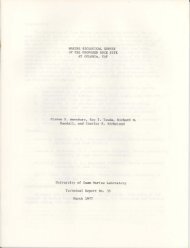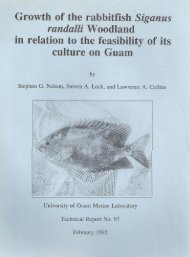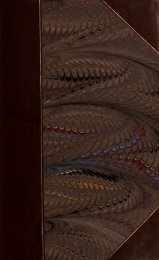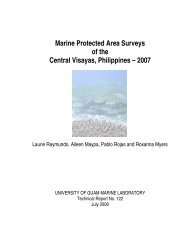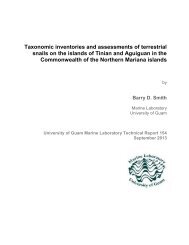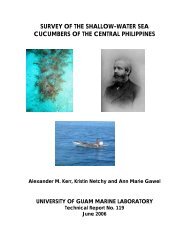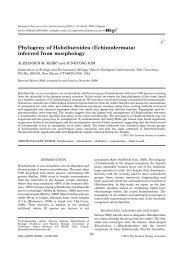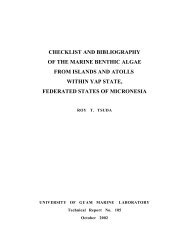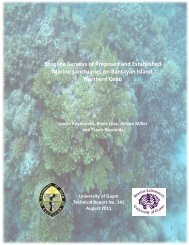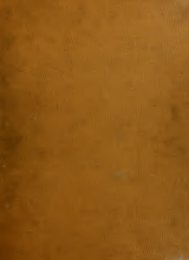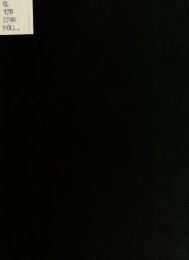UOGML Dive Manual - University of Guam Marine Laboratory
UOGML Dive Manual - University of Guam Marine Laboratory
UOGML Dive Manual - University of Guam Marine Laboratory
You also want an ePaper? Increase the reach of your titles
YUMPU automatically turns print PDFs into web optimized ePapers that Google loves.
SECTION 1.0<br />
GENERAL POLICY<br />
1.1 Scientific Diving Standards<br />
The purpose <strong>of</strong> the standards outlined in the UOG <strong>Marine</strong> <strong>Laboratory</strong> scientific diving<br />
program manual is to ensure that all scientific diving is conducted in a manner that<br />
will maximize the protection <strong>of</strong> scientific divers from accidental injury and/or illness.<br />
The standards in this manual meet or exceed the standards <strong>of</strong> the American Academy<br />
<strong>of</strong> Underwater Sciences (AAUS). The AAUS is recognized by OSHA as the diving<br />
standard setting organization.<br />
1.1.1 Scientific Diving Definition<br />
Scientific diving is defined (29CFR 1910.402) as diving performed solely as a<br />
necessary part <strong>of</strong> a scientific, research, or educational activity by employees whose<br />
sole purpose for diving is to perform scientific research tasks.<br />
1.1.2 Scientific Diving Exemption<br />
OSHA has granted an exemption for scientific diving from commercial diving<br />
regulations under the following guidelines (29 CFR 1910, Subpart T, Appendix B):<br />
1. The Diving Control Board (DCB) shall consist <strong>of</strong> a majority <strong>of</strong> active scientific<br />
divers and has autonomous and absolute authority over the scientific diving<br />
program's operation. The DCB shall additionally have the authority to approve<br />
and monitor diving projects, review and revise the diving safety manual, assure<br />
compliance with the manual, certify the depths to which a diver has been<br />
trained, take disciplinary action for unsafe practices, and assure adherence to the<br />
buddy system for scuba diving.<br />
2. The sole purpose <strong>of</strong> the project using scientific diving is the advancement <strong>of</strong><br />
science; therefore, information and data resulting from the project are<br />
non-proprietary.<br />
3. The tasks <strong>of</strong> a scientific diver are those <strong>of</strong> an observer and data gatherer.<br />
Construction and trouble-shooting tasks traditionally associated with<br />
commercial diving are not included within scientific diving.<br />
4. Scientific divers, based on the nature <strong>of</strong> their activities, must use scientific<br />
expertise in studying the underwater environment and therefore, are scientists or<br />
scientists-in-training.<br />
1


